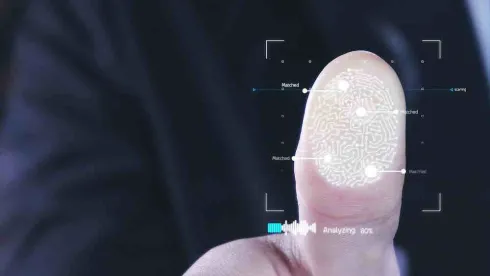In just the last two weeks, the Illinois Supreme Court dealt two significant blows would be defendants (i.e., employers and consumer-facing companies) under Illinois’ exacting Biometric Information Protection Act (BIPA). The two rulings, addressing counting claim accruals and the statute of limitations, increase potential damages by several orders of magnitude. Claims that once may have been limited to six-figure liability may now skyrocket well into the seven to ten figure range. And, because both decisions came from Illinois’ highest court, there is no relief in sight unless the Illinois General Assembly affirmatively steps in to reverse these holdings statutorily.
As we previously highlighted, BIPA claims already provided significant risk to employers and consumer-facing companies that use individuals’ biometric information (e.g., finger/hand scans, facial recognition, etc.). The risk is typically present when a company that is otherwise unaware of BIPA’s strict requirements collects and/or uses individuals’ biometrics in furtherance of tasks (such as: clocking in and out of work, accessing secured areas, or even tracking consumer purchase histories) in an effort to streamline the consumer experience. While these actions may be well-intentioned, failure to strictly adhere to BIPA’s exacting requirements (e.g., written consent, maintaining a publicly available biometric policy, etc.), each and every violation presents potential claims.
In the latest string of rulings, the Illinois Supreme Court examined BIPA’s statute of limitations and claim accrual methodology (i.e., how to count violations). First, there was some question as to whether BIPA’s statute of limitations fell into a one-year privacy limitations period or Illinois’ longer five-year “catch all” limitations period. Simply put, the Court resolved this limitations period question, holding that BIPA claims can reach back as far as five years from the filing of a BIPA claim. This long limitations period invariably increases the potential liability for non-compliant companies.
The Court’s latest ruling, however, is significantly more problematic. On a certified question from the Seventh Circuit in Latrina Cothron v. White Castle System Inc., the Illinois Supreme Court held that BIPA violations accrue each time a company collects an individual’s biometric information without complying with the law’s notice and consent requirements. Until now, defendants argued that BIPA claims arose only upon the first unlawful collection/use of biometrics, and that any subsequent collections/use did not add any additional claims since the collection/use was complete upon the first instance. The Court, however, disagreed, holding that each time a company collects and uses an individual’s biometric information without adequate notice and consent gives rise to another distinct claim with its attendant statutory damages.
So what does this mean practically?
Let’s take the example of an employer that collects and uses their employees finger scans to clock in and out of work (similar to the White Castle case above). Assuming an employee scans in and out four times a day (i.e., to start/end the work day, and to take a lunch break), there are potentially four separate BIPA violations each work day. If that employee works five days a week and fifty weeks a year, their employer could be liable for up to $1,500,000 in statutory BIPA penalties in just one year and for just one employee. This number merely assumes a “negligent” violation of the statute triggering the lesser $1,500 per violation penalty. For “willful” violations, a $5,000 statutory penalty applies, bringing the same hypothetical to up to $5,000,000 per employee per year. Taking this example further, assuming a company has just 50 full time employees, that each employee works five days a week and scans their finger four times a day, in a five-year period a company could face a whopping $375,000,000 in BIPA damages. Untenable, to be sure, and an absurd result with only a narrow path toward resolution through the General Assembly, which to date has shown little appetite to amend BIPA’s penalty scheme.
In light of these developments, businesses and organizations with even the remote possibility of collecting biometric information as part of their operations in Illinois should immediately draft and implement a BIPA-compliant notice and consent policy — even if such a policy does not currently seem necessary. If your business or organization operates in Illinois but does not currently have a biometric data collection and use policy in place, think about developing one, in consultation with experienced counsel.







 />i
/>i

